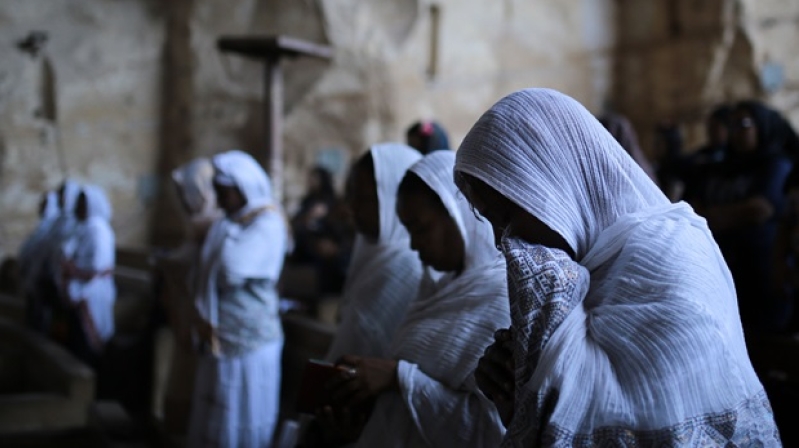
A group of Muslim extremists attacked an Ethiopian Christian with a machete, leaving him with deep wounds to the back of his head.
The 27-year-old man - who is not named for security reasons - was attacked in Hirna, a rural town east of the capital, Addis Ababa, reports World Watch Monitor. A source told the outlet that the gang of Muslims who injured the man were angry because he was evangelizing.
Before attacking the man in his home, the gang had first targeted the local Full Gospel Church and partly damaged its roof and a wall.
The Christian man's local clinic referred him to the hospital in nearby Asebeteferi who in turn sent him to Adama, where a doctor, believing he would die due to the severity of his wounds at a bigger hospital, operated on him. While he is still unwell, the surgery has stabilized him enough to be taken elsewhere for more specialized treatment.
Of the population of 99.4 million in Ethiopia, about 20 percent belong to Christian evangelical groups and 40 percent to the Ethiopian Orthodox Church (EOC), while about 34 percent of the total population is Muslim, according to Operation World. The Ethiopian Orthodox Church dates back to the 4th century when the nation was converted to Christianity.
While Ethiopia says it guarantees freedom of religion, evangelical Christians frequently face discrimination and harassment. The country is ranked 22nd of 50 countries in which it is most difficult to live as a Christian, according to the 2017 World Watch List compiled by Open Doors, which works worldwide with Christians under pressure for their faith.
Open Doors previously shared the story of Workitu, a woman who converted to Christianity last year in the Muslim-dominated SNNP region south of the Ethiopian capital Addis Ababa.
In an attempt to convince Workitu to renounce Christianity and revert back to Islam, her husband, along with members of the community, severely beat her and threatened to kill her.
Workitu told her church leaders of the abuse she endured at the hands of her husband, and they advised her to report this to authorities in writing. In February, she wrote a letter to police and local government officials to report the abuse, telling them she feared for her life. However, according to sources, officials ignored her request for protection and now deny ever having received the letter.
Eventually, Workitu's husband and a neighbor, angry that she refused to deny Christ, demanded that she sell government drought relief aid she had collected earlier for her family. When she refused, they began to beat her, and continued attacking her even after she had collapsed.
Villagers took Workitu to a clinic in a nearby town, but after four days she was referred to another hospital. She died in transfer, five days after the attack.
Following their mother's death, Workitu's two sons, ages 17 and 20, told Christian leaders they want to know more about the Lord their mother worshipped. Eventually they, along with another villager who was a close friend of Workitu's, embraced Christianity.
"Workitu is like Stephen," commented a local evangelist. "Her death was honored by the bringing of her sons to new life. I know she would have been extremely delighted had she witnessed her son's' decision to follow Christ."






